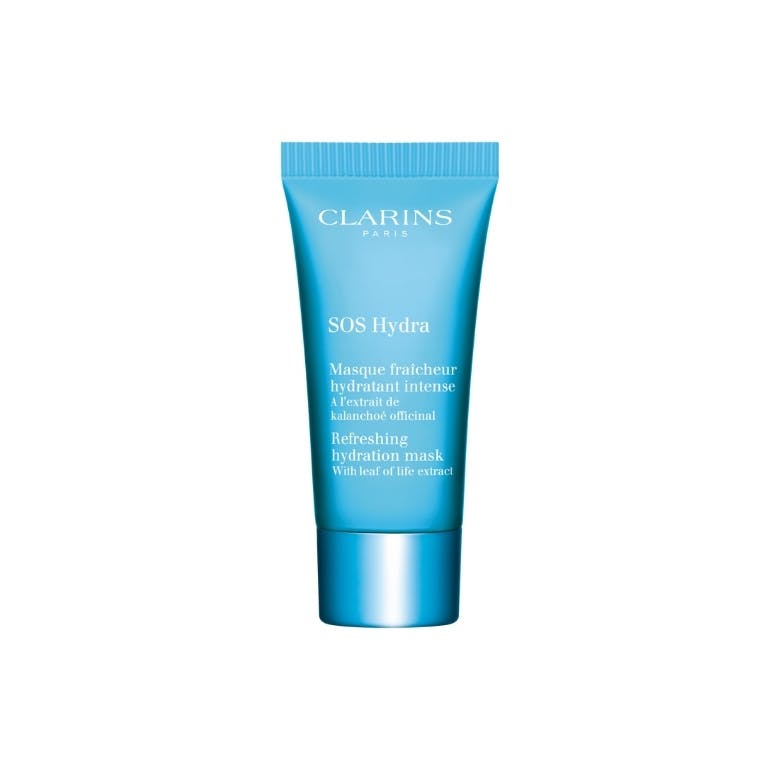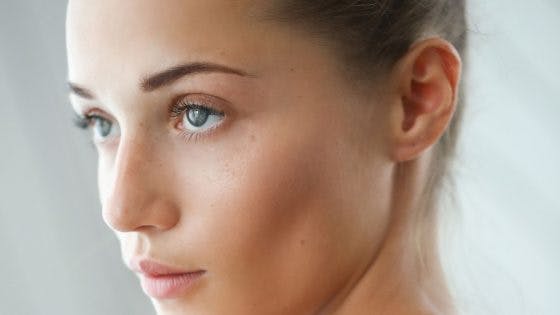8 Common Culprits Of Skin Damage
8 minutes read
Eleanor Roosevelt might have said: “Today is the oldest you’ve ever been, and the youngest you’ll ever be again.” which is true to a certain degree. But, when it comes to the state of your skin? Specific interventions can make time almost standstill and maybe even reverse some of the damage that might have been inflicted.
We’ve spoken to skincare experts about the eight common culprits of skin damage and how to combat it through dietary, lifestyle and skincare approach.
What is skin damage?

Skin damage essentially means that the skin barrier is compromised. The skin barrier, also sometimes referred to as the “moisture barrier,” is the outermost layer of our skin. Its primary role is to protect the body against everyday environmental aggressors and limit critical water loss from the body. In other words, skin damage is the opposite of healthy and hydrated.
Skin damage can show in many forms, including chronic skin irritation, itchy skin, dehydrated, dull skin, hyperpigmentation, skin infections, delayed wound healing, rosacea, and eczema flare-ups.
What causes skin damage?
External and internal factors such as physical and emotional stress, diet and lifestyle, ingredients in make-up and skincare, environmental threats – UV exposure, air pollution, seasonal temperature fluctuations – can all lead to a compromised skin barrier. Here, we look at the eight common causes of skin damage.
1. Poor diet
The proverbial saying ‘You are what you eat’ is more accurate than you might think. Ever notice that a blemish pops out of nowhere the next day when you do something unhealthy? This offers some proof that what we eat determines the state of the skin.
Numerous studies have shown how nutrients affect skin wrinkling, dryness and thinning. For example, one investigation has found that skin sagging and loss of elasticity are all related to changes in the skin’s collagen and elastin fibres, which are themselves impacted by diet.
“Acne and other skin problems are primarily caused by inflammation, so it’s important to combat this by eating a diet rich in anti-inflammatory food, such as veggies, fruit, nuts, seeds, legumes, wild seafood, and pasture-raised meat,” Maria Marlowe, Holistic Nutritionist tells Beauty Daily.
The British Dietetic Association (BDA) confirms the most effective way to fight skin ageing is by eating a balanced nutritional diet.
2. Excessive drinking
Alcohol is a diuretic that increases your body’s urine production leading to dehydration. This can manifest on your skin in different ways, even rather negatively, such as dehydrated and dry skin, enlarged pores, puffiness, rosacea, and breakouts.
Experts say if you skip alcohol for a month, you will notice clearer, more hydrated, more even in tone and less puffy, more radiant skin. In addition, 54% of Dry January participants reported having better skin health. Dry January is a one-month alcohol-free challenge.
Read Next: This Is What Happens To Your Body If You Cut Alcohol
For inevitable night-outs, stay away from beer and cocktails, as they’re high in sugar, which spikes blood insulin resulting in inflammation and acne. Instead, opt for red wine (make sure you don’t suffer from rosacea as it triggers flare-ups). Drink in moderation and make sure to keep yourself hydrated by drinking water after each alcoholic beverage.
3. Smoking
According to Smokefree.gov, smoking cigarettes can cause the skin on the face to become dry, more prone to wrinkles and stretch marks, and appear dull and grey, adding years to your face. It’s never too late to quit smoking and stop the damage.
The NHS recommends stopping smoking as it won’t only improve your physical health but also is proven to boost your mental health and wellbeing. Quitting can improve mood and help relieve stress, anxiety and depression. It’s a win-win! You do not have to do it alone. Call the free National Smoke Free Helpline on 0300 123 1044. Talk to a trained adviser for support.
4. Lack of sleep
Research shows that inadequate sleep causes acne. Also, less sleep can lead to the appearance of ageing skin. According to a study, people who report poor sleep showed their skin didn’t retain as much water. A high-water loss indicates that the skin barrier is weak. This is because sleeping helps the body repair itself. Women with better sleep have 30% greater skin barrier recovery than women who have slept poorly. Also, poor sleep gives a more tired appearance, in addition to eye bags, puffiness, and dark circles.
The National Sleep Foundation recommends adults sleep at least seven to nine hours each night. This will allow your body to release growth hormones, which help with cell and tissue repair and restore your skin.
Before you hit the bed, apply My Clarins RE-CHARGE Relaxing Sleep Mask to freshly cleansed skin, massaging evenly across your face and neck and leave overnight. You’ll wake up with more hydrated skin. This mask is made with 95% ingredients of natural origin, such as acerola seed, fig and huang qi.
Read Next: How to Sleep Better
5. Pollution
Next to the sun, pollution causes the worst environmental skin damage as it manifests itself with fine lines, rashes, sensitivities, blemishes, pigmentation problems, and dry and rough skin. The city air we breathe is far from pristine. Pollutants generate free radicals that exist in the atmosphere alongside the polluted air and it lands on our face every day.
We can combat this by incorporating anti-pollution skincare. Beauty Daily swears by the best all-rounder daily SPF, the UV+[5P], as it protects you from the sun as well as all kinds of pollution such as atmospheric, indoor, blue light and photo pollution.
6. Sun exposure
The sun generates free radicals, DNA damage, and inflammation. It is our skin’s biggest enemy for irreversible skin damage and premature ageing.
“The only way to prevent sun damage and fight against skin ageing is by wearing a broad-spectrum SPF with SPF 30 or higher every day and limit your sun exposure.” Charlotte McHale, Clarins Training Manager advises.
Most sunscreens protect against UVB, the rays that cause burning, but even when there’s no sun, UVA rays are still present, and these are the rays that cause signs of ageing.
McHale recommends incorporating the Double Serum and Double Serum Eye duo as part of your skincare routine. The main ingredient of these two cult-favourite skincare staples is turmeric, known for its exceptional anti-ageing properties and helps fight significant signs of skin ageing. Other scientific studies have shown that curcumin, a chemical compound found in turmeric, can decrease UV damage.
7. Constant stress
“You can do all these fantastic things. You can wear SPF, you get enough sleep, stop smoking, and exercise, but if you are constantly stressed, it will still wreak havoc on your skin,” McHale says.
There is a link between skin and stress. Dermatologists say chronic stress takes a toll on your skin.
When we are stressed, the body releases a hormone called cortisol. Overproduction of cortisol is problematic for skin issues such as premature ageing, dry and irritated skin, sallow and dull skin. However, it also causes increased activity of the oil glands leading to clogged pores and breakouts and can inflame conditions such as psoriasis, rosacea and eczema.
McHale suggests adding an anti-stress mask weekly routine by applying SOS Hy
dra Refreshing Hydration Mask for a 10-minute instant boost.

Thirty minutes to spare? Then, pop up at your nearest Clarins’ Beauty Bar for a DeStress Express. This deep pressure massage, turbocharged with soothing essential oils, will relax the most tensed and stressed muscles such as hands, scalp, neck, shoulders, or face and eyes. Also, exercise reduces stress hormones and stimulates the production of endorphins, which together help foster relaxation.
“Exercising regularly can prevent and reverse signs of skin ageing,” Ro Huntriss, London-based consultant dietitian and nutritionist, says. Adding, “Exercise improves blood circulation and promotes collagen production, and promotes new skin cells which keep the skin looking glowing and is also helpful for anti-ageing.”
Read Next:
8. Skincare
Another reason for skin damage is not having a good skincare regime. It can be sleeping with your make-up on, clogging the pores, resulting in the development of acne and accelerating skincare ageing if done continuously. In addition, incorrect use of skincare products, overuse of active ingredients and over-exfoliation can sensitise the skin.
Good skincare is vital as it helps your skin stay in optimal condition. Exfoliating to shed dead skin cells, moisturising to keep dry skin at bay and SPF to protect your skin from the sun and pollution. An effective skincare routine can help prevent acne, treat wrinkles, and help keep your skin looking its best.
“We are all ageing, yes, but more importantly, we are living. Irrespective of how we look or the increasing age of each birthday, we grow into these incredible versions of ourselves.
The fear of ageing:
Giselle La Pompe-Moore, Trauma-sensitive meditation teacher and author of Take It In: Do The Inner Work, says a shift in perspective can be really beneficial when it comes to ageing.
“We are all ageing, yes, but more importantly, we are living. Irrespective of how we look or the increasing age of each birthday, we grow into these incredible versions of ourselves. Our faces are these beautiful maps of who we’ve been, where we’ve travelled, the joy we’ve experienced, the laughs we’ve immersed ourselves in and the pain we’ve overcome. We forget just how much our skin does for us and that it’s the body’s largest organ. When we move away from the image of ourselves that the world wants us to be and who we are underneath it, we can feel a sense of gratitude for all that our skin does for us. We can also think about who we are beneath whom we see in the mirror,” La Pompe-Moore concludes.
Sign up for our newsletter
We will keep you in the loop for special offers, exclusive gifts and product news.

